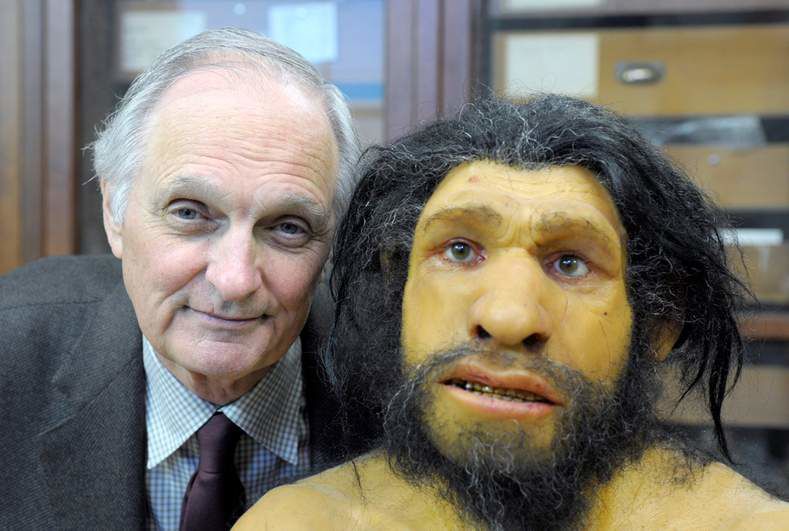PBS series explores the fine line between humans and animals
Published 4:00 am Monday, December 28, 2009

- Alan Alda, host of the PBS series “The Human Spark,” poses with a model of a Neanderthal. The show looks at what makes humans unique among living creatures.
When PBS canceled “Scientific American Frontiers” after 15 seasons in 2005, many fans mourned its loss, particularly its accessible approach to complicated material, which featured the host, Alan Alda, asking questions that nonscientists could understand, while throwing in a bit of humor as well.
A successor attempt to engage a new, younger audience, “Wired Science,” failed to catch on, but now Alda has another chance to deploy his participatory brand of science journalism with the three-part program “The Human Spark.”
The show, being broadcast on consecutive Wednesdays on most public stations beginning Jan. 6, tackles a currently hot science topic: the fine line that separates humans from other species, from the Neanderthals to chimpanzees. Or as Alda summed it up over lunch at a restaurant on the Upper West Side of Manhattan: “How are we different from the other animals, how did we get that way, and where is it in the brain that these things have taken root?”
The questions take him, among other places, to an archaeological dig in France; to Leipzig, Germany, where researchers work with apes; and to the Laboratory of Neuro Imaging at the University of California, Los Angeles.
Alda, whose passion for science spills over to topics like how chaos theory can be applied to finding the right mix of hot and cold water in the shower, is an active participant, chipping spear points, dragging boxes for ape experiments, even getting his brain scanned.
John Wilson, the PBS chief programming executive, said the past search for a new science show “to freshen the schedule” wasn’t meant as a dig at “Frontiers.”
In the new program “Alan Alda really serves as that surrogate for the viewer,” Wilson said. “He’s not a scientist by training by any means, but he has a curious mind,” he said, adding that Alda “makes it accessible and understandable, and never did I feel like I was having to compromise my in- telligence.”
As with “Frontiers,” Alda said, the goal is to “keep it a conversation.”
Sometimes, he added, the scientists and researchers would “lapse into lecture mode, and I’d have to bring them back into a conversation. I don’t try to explain their work to anyone, I just try to understand it.”
Alda, who won Emmys for his acting on “M*A*S*H” and “The West Wing,” calls the former science program “the best thing I ever did in front of a camera.”
The title of the series suggests that scientists have been able to discover what makes us human, a question only partly answered by the program. Still, Graham Chedd, the show’s creator, said he wasn’t worried that he was setting out on an unknowable quest.
“The questions you ask are often much more interesting than the answers you get,” he said. “There are lots of answers. The gulf between us and the other animals is just colossal. What we’ve come up with is a lot of people’s best guess.”






